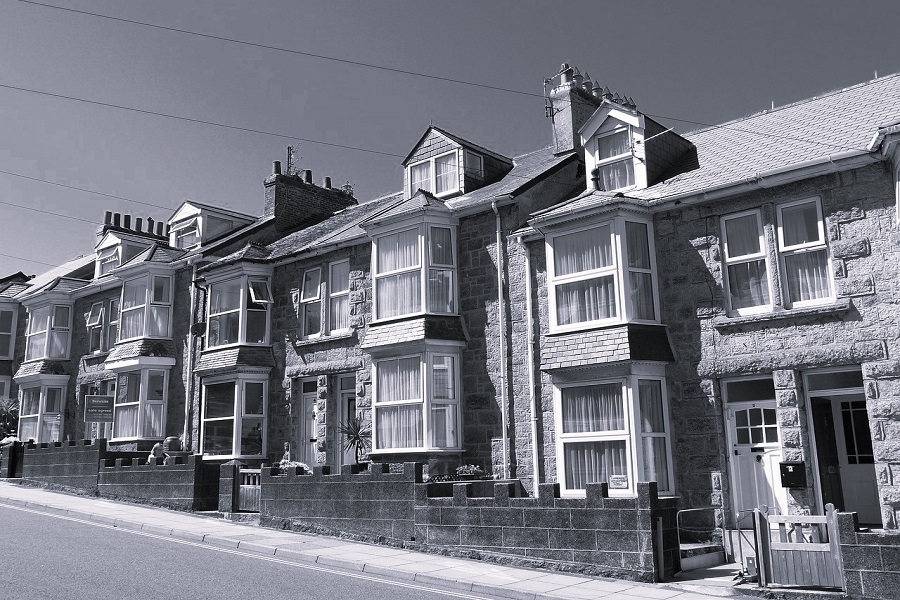One of the founding fathers of liberalism, Locke, in his Treatise of Government, writes that what renders the appropriation of property just is that one does not worsen the situation of others by doing so. He uses the example of water; it is not unjust to appropriate water from a river if there is still enough water in the river for others to quench their thirst.
This notion set forth a long-standing liberal commitment to property rights that has become synonymous with the free market and the liberal right across the Anglosphere; one that the Conservatives have always subscribed to. But the security that Locke demands as a condition of the just appropriation of property is increasingly in doubt.
With housing standards at an unacceptable low despite record-high house prices, many lack the basic security that a good home would provide. Recently, two-year-old Awaab Ishak died due to the exposure to mould in his inadequate home, resulting in respiratory failure. We have over a quarter of a million homeless people, and over three thousand sleeping on the streets.
An obvious solution to this market failure is for the government to do the job themselves. And, indeed, social housing in the UK often does a better job than the market. Some social homes are built remarkably cheaply – under the 2016-2023 Affordable Homes Programme, the average cost to construct a single one was £41,551. They are safer, too. Private rental homes are over two times less likely to meet the Decent Home Standard, a technical standard introduced by the government to ensure health and safety in housing.
Despite this, Britain is losing social housing stock. In 2021/22, 21,600 social homes were either sold or demolished, and only 7,500 built. It should not be a shock, then, that the Conservative MP, Shaun Bailey, has called for an expansion of social housing, demanding an additional 90,000 social homes built every year.
This, traditionally, has been done in one of two ways: via local authorities or housing
associations. But, in the last 40 years, local authorities have barely built anything. In 1967, over 200 thousand homes were built by them. But the last time they built more than five thousand was in 1992. David Simmonds CBE MP rightly highlights that the Government ought to support local authorities to act as developers in their own right. The 60s, our period of greatest housing expansion, has coincided with hundreds of thousands of homes being developed by the local government every year. As devolution increases and the levelling-up agenda takes root, local authorities ought to play a key role in home development once again.
But social housing alone cannot lift Britain out of the housing crisis. Despite losing social homes yearly, the UK still has one of the highest proportions of social housing stock in Europe, at 16.7%, as compared to the OECD average of 6.9%. The lack of social housing is not the lone cause of our problems.
No wonder then that James Cowling, a co-founder of Next Gen Tories, writes about the importance of private tenancy reform. He praises some of the recent Government efforts in that direction, named in the Renter Reform Bill, including the axing of no-fault evictions, which come with a significant financial cost to the family forced to move, and an even more significant emotional burden. The Government is also extending the Decent Homes Standard to private property, which should help mend the safety gap between private and social housing. All those regulations will be enforced by a new property ombudsman, who will take the pressure off courts in enforcing property law, for the benefit of both tenants and landlords.
More regulation, however, is likely to make rent more expensive, while the demand for housing rises. An unobvious but ingenious way to alleviate this is proposed by the Rt Hon Damian Green. What matters is not the number of houses, let alone units, but the living space that is available. Indeed, almost a million households across the UK live in overcrowded conditions. But older people tend to live in homes that are disproportionately large, making them difficult and expensive to maintain, especially as one’s mobility becomes impacted by age. In smaller homes, they could experience better living standards and smaller bills, all while freeing up living space for younger families to move in. By incentivising older people to move into homes specifically designed for them, we can benefit both them and the younger people who can move into the now-vacant larger homes, reducing the demand for altogether new homes.
Alone, this will not do. Most of all, we need more homes – hundreds of thousands every year. But it is a start.
This article is a companion piece to the Home Advantage essay collection by Bright Blue.








